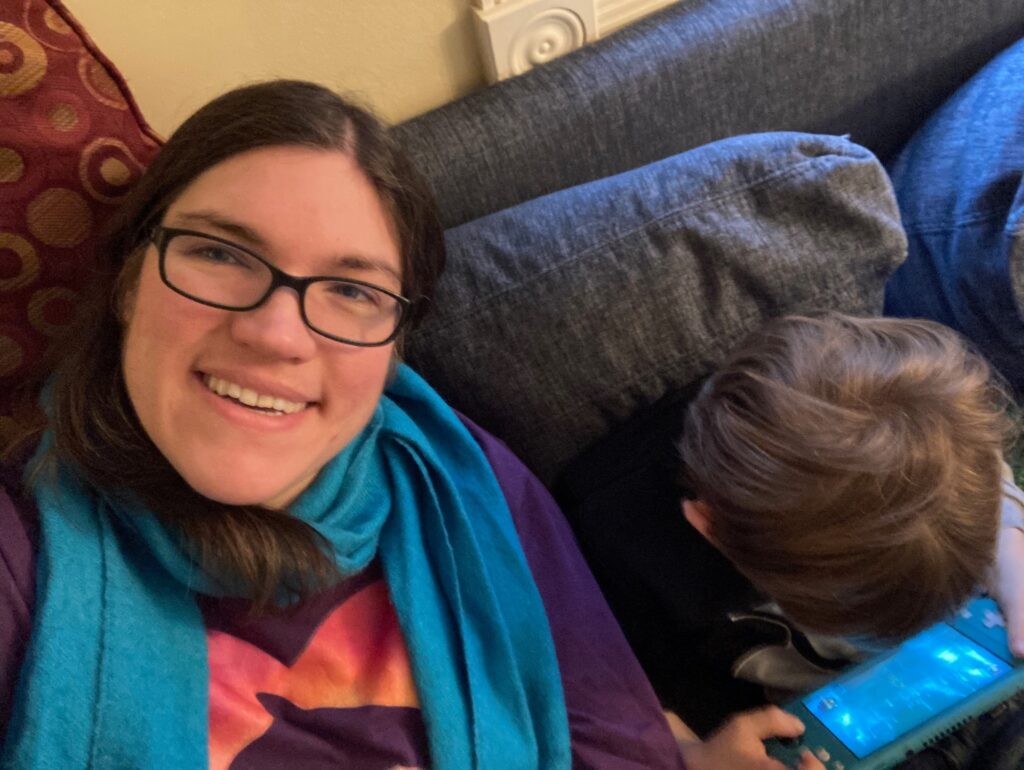
“I’m sorry – what was your name again?” I asked the man sitting next to me at the community meeting.
“Luis,” he replied, then gestured. “Remember, I asked you about hosting the neighborhood pantry?”
“Oh, right!” I recalled. “I’m sorry – I’m really bad at both faces and names.”
I’ve had some variation on this conversation dozens, if not hundreds, of times.
In college, I had people walk up to me and say “Hi, Shannon!” while I just looked at them blankly. I blamed the fact that so many people knew me from my reporting for the school paper. People remember getting interviewed, but I certainly didn’t remember everyone I interviewed.
As an adult, I thought maybe it was being irresponsible, maybe I just didn’t care enough. People said that if you cared enough, you would remember other people’s names. It was just a matter of common courtesy. I just couldn’t, especially for people I saw regularly over time but didn’t use their names often, like at church. The more people’s names I learned, the harder it was to remember them. I tried mnemonics, but I wouldn’t remember the mnemonic either. It’s like the information was there, but I couldn’t pull it out of the right filing cabinet.
The fact is that names – any names – just don’t stick unless I’ve heard or better yet, read them dozens of times. Even then, unless I continue to, they get buried in the mess of other information in my head. I drilled myself on identifying hundreds of plant and animal names for my field biology class in college. I barely remembered 2/3 of them for the test. Do I remember more than a couple of the most obvious ones anymore? Nope.
I have a different but related difficulty with recognizing faces. I barely visualize things and only if I work really hard at it. Even people I know and love, the vision in my mind’s eye is vague and fuzzy, as if it’s trying to pierce together what they looked like every time I’ve seen them. It’s not full aphantasia, but it’s definitely partial. So to remember someone’s face that I’ve only seen once or twice, I would have to stare at it for quite some time. Of course, that’s not really encouraged by polite society.
So along with a million other ways I can come off as socially awkward, I have the fact that I often don’t recognize people I’ve met before and can’t remember the names of people I’ve known for ages. In the past, I beat myself up about it every time.
Except that recently, I’ve noticed that my younger son has trouble remembering names too. I don’t shame him when he can’t remember a classmate’s name or assume he
“wasn’t trying hard enough.” Instead, I tell him that it’s okay and we can look it up in the class directory.
So why wasn’t I treating myself that way as well? We know that a lot of brain wiring runs in families. If he was having trouble with it out of no fault of his own, then maybe me having trouble with it wasn’t my fault either.
The more we can hold our own weaknesses and challenges with self-compassion and without shame, the better we can hold our children’s as well. Even if we hold our children’s challenge with compassion, they see when we shame ourselves. (Any person who never got criticism from their moms about weight, but heard them continually talking about their own bodies negatively knows that one.)
This is especially true of how our brains work, as society has very strict ideas of what is “right” and “wrong” when it comes to expectations of brain function and how it emerges in behavior. Embracing neurodiversity means embracing our own weird brains too, whether we have any kind of diagnosis or not.
If we can treat both our kids and ourselves with love and acceptance, we can bring about healing for everyone.